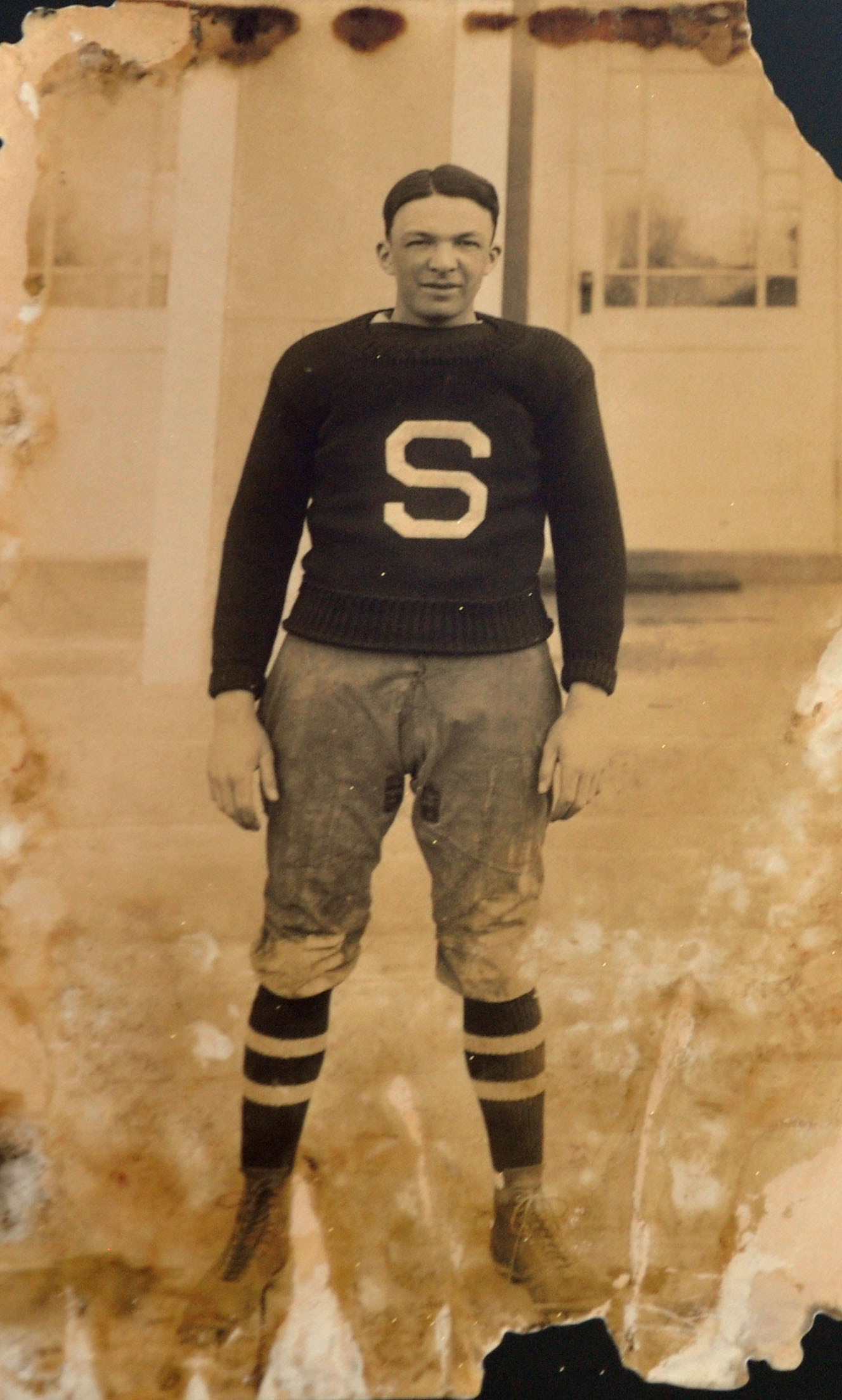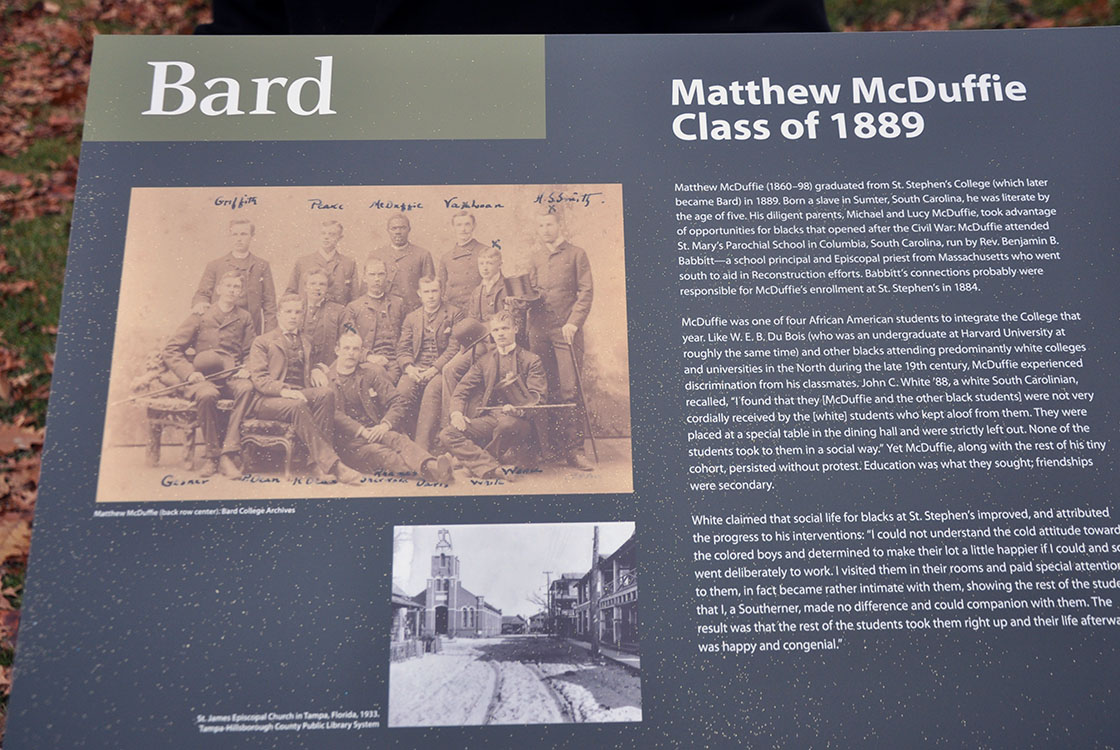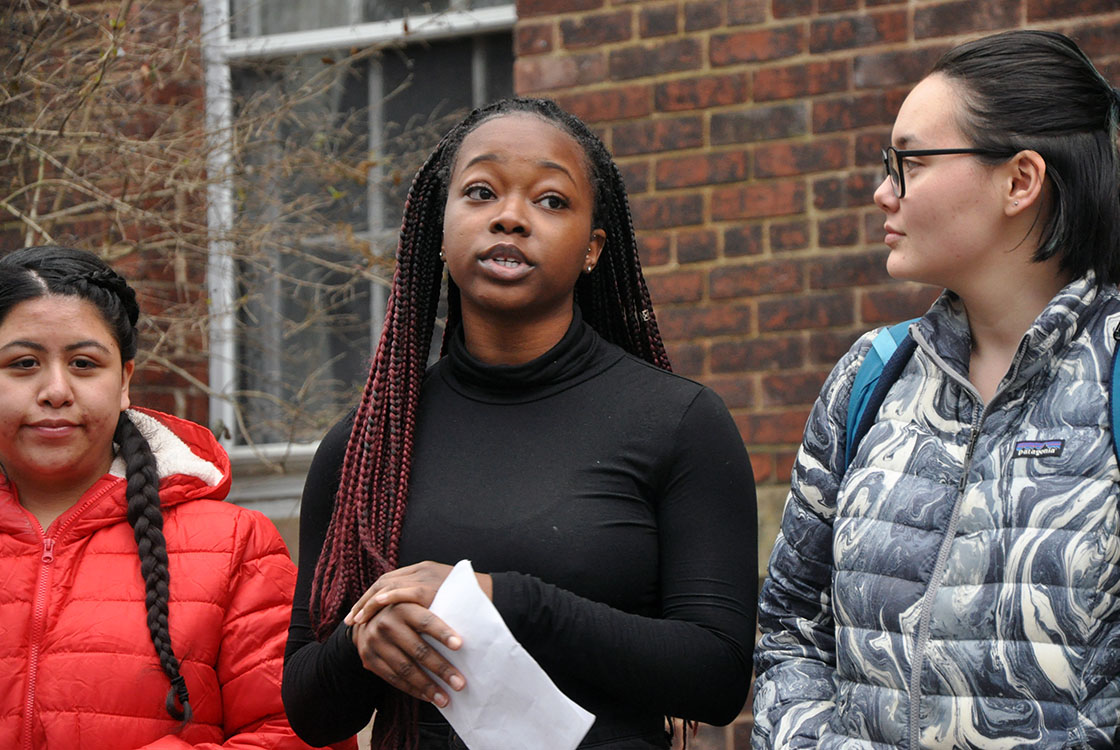Division of Social Studies News by Date
Results 1-7 of 7
December 2018
12-28-2018
The Center for the Study of Hate brings together multiple disciplines to examine the history and politics of bigotry and how to combat it.
Meta: Type(s): Faculty | Subject(s): Division of Social Studies | Institutes(s): Center for Civic Engagement |
Meta: Type(s): Faculty | Subject(s): Division of Social Studies | Institutes(s): Center for Civic Engagement |
12-26-2018
“The nation needs to have a serious conversation about what it is we’re doing with the troops we’ve deployed in combat areas,” says Ketterer.
Meta: Type(s): Faculty | Subject(s): Division of Social Studies,Politics and International Affairs | Institutes(s): Bard Globalization and International Affairs Program,Bard Undergraduate Programs |
Meta: Type(s): Faculty | Subject(s): Division of Social Studies,Politics and International Affairs | Institutes(s): Bard Globalization and International Affairs Program,Bard Undergraduate Programs |
12-12-2018
“The trajectory from the Palestinian refugee camp where I grew up … to a graduate school in a foreign capital was not quick or easy, but my persistence paid off,” Jawabreh writes.
Meta: Type(s): Alumni | Subject(s): Bardians at Work,Division of Social Studies |
Meta: Type(s): Alumni | Subject(s): Bardians at Work,Division of Social Studies |
12-09-2018
Since 2009, Bardians and local high school students have worked with anthropology professor Christopher Lindner at the 1746 Parsonage in Germantown, 9 miles north of the College.
Meta: Type(s): Event,Faculty,Student | Subject(s): Anthropology Program,Division of Social Studies | Institutes(s): Bard Undergraduate Programs |
Meta: Type(s): Event,Faculty,Student | Subject(s): Anthropology Program,Division of Social Studies | Institutes(s): Bard Undergraduate Programs |
12-06-2018
McKim was honored by the ASC’s Women and Crime and Critical Criminology and Social Justice divisions for her 2017 book Addicted to Rehab: Race, Gender, and Drugs in the Era of Mass Incarceration, “a compelling and critical ethnography of drug rehabilitation” (CCSJ).
Meta: Type(s): Faculty | Subject(s): American and Indigenous Studies Program,Division of Social Studies,Sociology Program | Institutes(s): Bard Undergraduate Programs |
Meta: Type(s): Faculty | Subject(s): American and Indigenous Studies Program,Division of Social Studies,Sociology Program | Institutes(s): Bard Undergraduate Programs |
12-04-2018
Senator Warren (D-MA) spoke via teleconference to students and faculty from Bard College, Bard College at Simon's Rock, and Bard Microcollege Holyoke on December 1.
Meta: Type(s): Event | Subject(s): Division of Social Studies,Early Colleges | Institutes(s): Simon's Rock at Bard College |
Meta: Type(s): Event | Subject(s): Division of Social Studies,Early Colleges | Institutes(s): Simon's Rock at Bard College |
12-03-2018
Bard students, staff, and faculty gathered for a Commemoration Walk on the afternoon of Monday, December 3, visiting new signage around campus designed to encourage critical reflection on Bard’s history. This is a project of students in Professor Myra Young Armstead’s Inclusion at Bard course, part of a series of Engaged Liberal Arts and Sciences courses at Bard, sponsored by the Center for Civic Engagement. The new placards on campus engage community practices of public memory, recognition, and forgetting.
A ribbon-cutting ceremony was held at each location, with a historical presentation by students and remarks by a member of the faculty. Professor Armstead kicked off the event at the marker outside Aspinwall Hall highlighting John Lloyd Aspinwall, an early benefactor of St. Stephen’s College, Bard’s first incarnation. Like many antebellum donors to the nation’s colleges and universities, Aspinwall owed a significant portion of his wealth to commercial ventures that profited from slavery in the Americas.

A second placard near the library, overlooking Kline with a view of the Catskills, is dedicated to Vine Deloria Sr., Class of 1926. Deloria was an exceptional athlete at St. Stephen’s whose life and work were defined by a proud Native American cross-culturalism. He became the Episcopal archdeacon of Indian parishes in South Dakota and a vocal advocate for tribal governments.

A third placard near the Chapel of the Holy Innocents honors Matthew McDuffie, Class of 1889. Born a slave in South Carolina, he was literate by the age of five. Thanks to the efforts of his diligent parents, McDuffie was able to take advantage of opportunities for Black Americans that opened after the Civil War. He was one of a cohort of four African American students to integrate St. Stephen’s in 1884. McDuffie experienced discrimination from his classmates but he persisted in his education without protest, and went on to become the first resident priest of St. James Episcopal Church in Tampa, Florida.

A ribbon-cutting ceremony was held at each location, with a historical presentation by students and remarks by a member of the faculty. Professor Armstead kicked off the event at the marker outside Aspinwall Hall highlighting John Lloyd Aspinwall, an early benefactor of St. Stephen’s College, Bard’s first incarnation. Like many antebellum donors to the nation’s colleges and universities, Aspinwall owed a significant portion of his wealth to commercial ventures that profited from slavery in the Americas.

Vine Deloria Sr., Class of 1926.
A second placard near the library, overlooking Kline with a view of the Catskills, is dedicated to Vine Deloria Sr., Class of 1926. Deloria was an exceptional athlete at St. Stephen’s whose life and work were defined by a proud Native American cross-culturalism. He became the Episcopal archdeacon of Indian parishes in South Dakota and a vocal advocate for tribal governments.

Historical marker near the Bard Chapel honoring Matthew McDuffie, Class of 1889.
A third placard near the Chapel of the Holy Innocents honors Matthew McDuffie, Class of 1889. Born a slave in South Carolina, he was literate by the age of five. Thanks to the efforts of his diligent parents, McDuffie was able to take advantage of opportunities for Black Americans that opened after the Civil War. He was one of a cohort of four African American students to integrate St. Stephen’s in 1884. McDuffie experienced discrimination from his classmates but he persisted in his education without protest, and went on to become the first resident priest of St. James Episcopal Church in Tampa, Florida.

Students in Professor Armstead's Inclusion at Bard course speak at the historical marker dedicated to John Aspinwall.
Photo: Students in the Inclusion at Bard course present their research on Matthew McDuffie, Class of 1889, at a new placard near the chapel honoring his life and work, as Professor Myra Young Armstead (far left) looks on.
Meta: Subject(s): Division of Social Studies,Inclusive Excellence,Office of Institutional Support (OIS) | Institutes(s): Bard Undergraduate Programs,Center for Civic Engagement |
Meta: Subject(s): Division of Social Studies,Inclusive Excellence,Office of Institutional Support (OIS) | Institutes(s): Bard Undergraduate Programs,Center for Civic Engagement |
Results 1-7 of 7